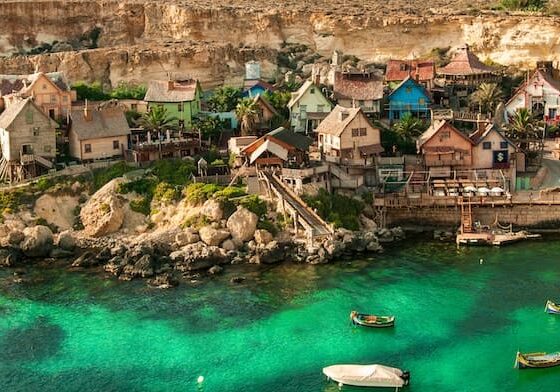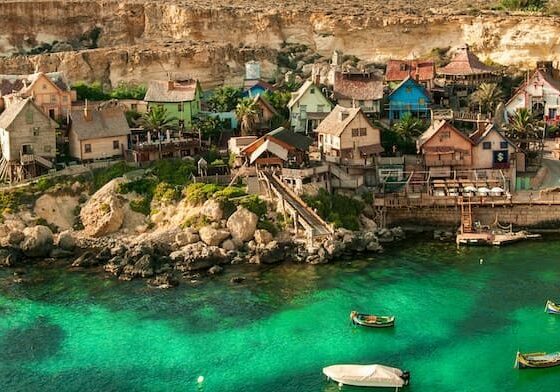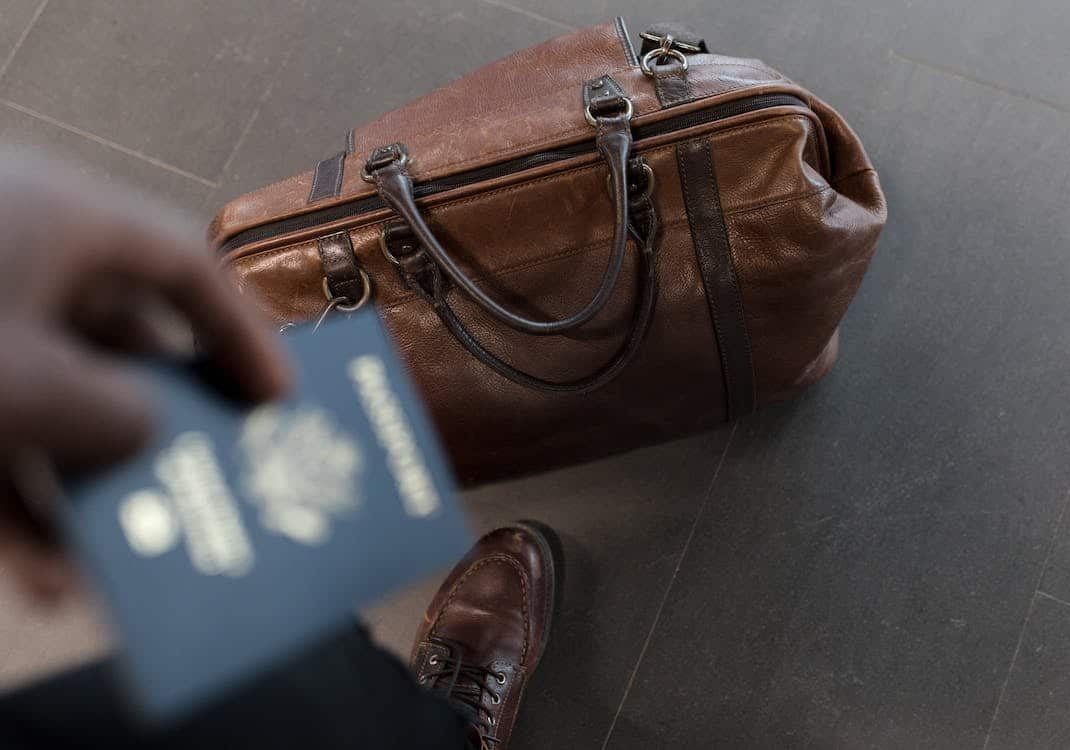
This program not only allows individuals to live in a country known for its beauty and warm community but also grants access to the European Union’s benefits.
In this article, we’ll provide a comprehensive guide for descendants eager to reclaim their Maltese roots, including:
- How to acquire Maltese citizenship by descent
- Outline of the eligibility criteria
- Benefits of Maltese citizenship by descent
What is Malta Citizenship by Descent?
As the name implies, Malta citizenship by descent grants anybody with ancestral ties to the country the opportunity to apply for citizenship. This typically means that you would need to have a grandparent with Maltese citizenship to make a claim.
According to the Maltese government, citizenship by descent falls under the administration of the official citizenship by registration program. While this encompasses the spouse of a Maltese citizen, there are also provisions for ancestry.
Eligibility Criteria for Maltese Citizenship by Descent
The Maltese Community Agency’s rules for the Acquisition of Citizenship explain that “a descendant in the direct line of an ascendant born in Malta of a parent likewise born in Malta” can claim citizenship by descent.
In simple terms, that means you can claim Maltese citizenship if one of your grandparents was born in Malta to parents who were also born there. However, this wasn’t always the case. Until 2007, it only went up to one generation. But further amendments to the Maltese Citizenship Act made it possible for second as well as subsequent Maltese generations born abroad to acquire Maltese Citizenship by registration.
How to Obtain Malta Citizenship by Descent
As with any government action, there are several steps that need to be followed for a successful application for Maltese citizenship by descent, including the submission of the required documents and doing the necessary research on your lineage.
What documents are required for Maltese citizenship by descent?

- A full birth certificate of the applicant (showing the parents’ names)
- The applicant’s marriage certificate (if applicable)
- One recent passport-sized photo of the applicant
- The applicant’s passport
- The birth and marriage certificates of the applicant’s ascendants show the direct link to two consecutive generations of ascendants born in Malta
In the case of the third and subsequent generations:
- The death certificate of the applicant’s ascendant/s born in Malta (in case of death); and
- Copy of the registration certificate of the applicant’s ascendant/s born in Malta (as applicable)
What is the application process for Maltese citizenship by descent?
The following provides a step by step guide to the application process for Malta citizenship by descent.
1. Prepare required documentation
To apply for citizenship in Malta, the first step is to submit all the required documents to the relevant agency.
2. Document review and application forms
Once the agency has reviewed the submitted documents, you will be asked to verify and sign the completed Maltese citizenship by descent application form.
If the applicant is the foreign spouse of a Maltese citizen, they are also required to jointly declare (by affidavit) that they have been living together for at least five years since their marriage and are currently still living together.
3. Take the Oaths for Maltese citizenship by descent
The agency will administer several oaths, including the Oath of Allegiance to the Republic of Malta.
4. Approval and registration
After you submit your application, the Agency will process it, and successful applicants will be registered as Maltese citizens. Once registered, applicants will receive a certificate with their registration date. They will be asked to collect it in person from the Agency.
Maltese citizenship by descent for those born abroad
If you were born abroad, the Agency will send a letter to the Director of Public Registry to register your birth certificate. You’ll need to present this letter, along with your original birth certificate to the Public Registry.
You need to complete Form K (Registration as a citizen of Malta) or Form M (Registration as a citizen of Malta of a minor child) for your application, and it costs €150. You can also apply for a certificate of confirmation for an additional €10.
Benefits of Malta Citizenship
Freedom of movement within the EU
Malta is a member of the European Union (EU). This means that if you obtain a Maltese passport, you will also have an EU passport. According to the EU freedom of movement laws outlined in the Treaty on the Functioning of the European Union, EU citizens are allowed to live, work, or conduct business in any member state of the European Union.
Visa-free travel
The Maltese passport is one of the most powerful in the world. It provides freedom of movement within Europe and grants visa-free travel and visa-on-arrival access to 170 countries worldwide.
According to the Global Passport Index, Malta comes in at number 34, offering a high quality of life, fantastic investment opportunities, and enhanced mobility.
Obtain Malta dual citizenship
Malta offers applicants the opportunity to obtain dual citizenship. This is one of the top benefits of obtaining Maltese citizenship by descent. Malta permits dual citizenship with an applicant’s home country if they fit the criteria set out by the Maltese Citizenship Act.
Dual citizenship is one of the most sought-after titles, as it opens many more doors for those looking to immigrate, invest, and start a life outside of their home country. For example, those from third nation countries can obtain EU citizenship while keeping citizenship of their home country. This makes travelling much more convenient, as well as opening the door to fantastic investment potential within an EU country.
Tax efficiency
Malta’s tax system is based on residency rather than citizenship. This means that you may not be required to pay taxes in Malta even if you become a Maltese citizen. Additionally, new Maltese citizens can benefit from special tax schemes, resulting in greater tax efficiency and significant tax benefits.
Stable and secure country
Malta has one of the highest GDPs per capita in Europe. It also boasts one of the lowest unemployment rates. The country has a stable political climate overall, and many consider it one of the safest countries in Europe.
Maltese citizens are some of the happiest in the world, with three quarters of the population remaining content with their work and overall lifestyle in Malta.
Investment opportunities
The investment opportunities in Malta have expanded dramatically over the last few years for those with foreign citizenship and those born in Malta.
The country is home to a booming economy and has fast growing sectors, including finance, IT, energy, and business. One of the main benefits of becoming a Maltese citizen is having the opportunity to invest in these flourishing industries, with the potential for significant growth.
Alternative Pathways to Malta Citizenship
Citizenship by naturalization

- A minimum period of seven years of continuous lawful residence in the country,
- proficiency in either English or Maltese languages,
- knowledge of Maltese history and customs,
- and having a good character.
Depending on the country, additional eligibility criteria may include being financially stable with proof of paying taxes and renouncing original citizenship if the country does not allow dual citizenship.
Citizenship by registration
Acquiring Malta citizenship through descent falls under the umbrella of citizenship by registrations. However, there are other scenarios where this applies. For example, a former Maltese citizen seeking to re-acquire the country’s citizenship or through marriage to a Malta national.
Typically, applicants must be one of the following individuals to be eligible to apply for Malta citizenship by registration:
- The spouse of a citizen of Malta married for at least five years and is still married and living with the Maltese spouse.
- The spouse of a citizen of Malta who is still married but separated de jure or de facto provided that they lived together for at least five years after marriage.
- A widow/widower of a national of Malta
- A former citizen of Malta
- A person born before 21 September 1964 of a female born in Malta who is or was a citizen of Malta.
- A person born abroad between 21 September 1964 and 31 July 1989 to a Maltese mother, who was a citizen of Malta at the time of the child’s birth.
- A descendent up to the third generation born abroad of an ascendant born in Malta had one parent born in Malta.
Malta Citizenship by Investment

Citizenship by investment is when individuals obtain a second nationality from a foreign country by making a substantial investment in its economy. This usually occurs through real estate investing, purchasing shares in an existing business, starting a new company that creates jobs, or contributing to a national development fund.
Malta does not provide a direct citizenship by investment route. Nor does it offer dual citizenship status directly. Applicants of CES can qualify for Maltese citizenship. They do this by naturalization. This requires a consistent residence period in the country. It’s similar to Malta’s citizenship by marriage requirements.
This is on the condition that the individual makes a combination of investments in the country that boosts the Maltese economy and national development.
Requirements

- Be over the age of 18
- A third-country national (non-EU, non-EEA, or non-Swiss)
- Have a clean criminal record
- Pass a stringent due diligence process
- Not come from or have close ties to a sanctioned country
- Fulfill all the necessary investment requirements by meeting the program’s minimum investment thresholds
To gain foreign citizenship in Malta, you can invest at least €600,000 and complete 36 months of residency in the country. Alternatively, if you have resided in Malta for 12 months, you can invest at least €750,000 to qualify for citizenship.
Apart from the investment, you must purchase a residential property in Malta worth at least €700,000 which you must hold for a minimum of five years. Alternatively, you can lease a residential property with a minimum annual rent value of €16,000, also held for a minimum of five years.
Additionally, you must make a donation worth €10,000 to a Maltese organization approved by the Community Malta Agency.
As part of our commitment to providing transparent and reliable services, we are proud to be a licensed agent in Malta, holding the official license number AKM-AGEN. This certification demonstrates our dedication to the highest standards in the investment migration industry and further enhances our ability to offer expert guidance and support to our clients.
How Can Global Citizen Solutions Help You?
Global Citizen Solutions is a boutique migration consultancy firm with years of experience delivering bespoke residence and citizenship by investment solutions for international families. With offices worldwide and an experienced, hands-on team, we have helped hundreds of clients worldwide acquire citizenship, residence visas, or homes while diversifying their portfolios with robust investments.
We guide you from start to finish, taking you beyond your citizenship or residency by investment application.

Frequently Asked Questions about Malta Citizenship by Descent
Does Malta allow dual citizenship?
Before the year 2000, Malta dual citizenship was limited to citizens born in Malta who acquired citizenship of a foreign country and spent six years living there. The government of Malta amended the Malta Citizenship Act (Cap. 188) in 2000, granting all Maltese nationals the right to dual citizenship.
What are the residency requirements for Maltese citizenship by naturalization?
Malta has a seven-year naturalization period, so you must maintain a Maltese residence permit for seven years before submitting a Malta citizenship application. While this is written in Maltese immigration legislation, authorities would want an applicant for citizenship by naturalization to demonstrate significant ties to Malta. So, in practice, there may be barriers to obtaining citizenship by naturalization even if fulfilling the 7-year residence requirements.
Is citizenship by descent the same as citizenship by registration?
In theory, yes. In order to get citizenship by descent, you must apply to be registered as a citizen.
How far back does citizenship by descent go?
Initially it only allowed for applications up to grandparents. However, Malta made changes to the legislation that allowed for second as well as subsequent Maltese generations born abroad to obtain Maltese Citizenship by registration.
What is the Maltase citizenship by descent cost?
One of the great things about applying for Maltese citizenship by descent is the lower cost compared with other Malta immigration options. The Maltese citizenship by descent cost is simply a €150 application fee. You may also need to pay additional fees based on your requirements, but these range between €10-€25.
How long does it take to get Malta citizenship by descent?
It depends on when you apply and the backlog. Generally, Maltese citizenship by descent can take anywhere from five months to two years to process.
Can I pass on Malta citizenship by descent to my children?
Yes, you can pass on Maltese citizenship by descent to your children. If you are a Maltese citizen by descent, your children can also inherit Maltese citizenship, provided you meet the legal requirements, such as registering their birth with the Maltese authorities and proving your lineage.
Do I need to speak Maltese to obtain citizenship by descent?
No, you do not need to speak Maltese to obtain citizenship by descent. Language proficiency is not a requirement for acquiring Maltese citizenship through descent. The primary requirements focus on proving your Maltese ancestry and meeting the legal criteria.
What are the benefits of obtaining Malta citizenship by descent?
Those who have acquired Maltese citizenship will have benefits such as the ability to travel visa free to other EU countries, tax benefits, investment opportunities, access to world class education, and the opportunity to hold an EU passport.
How do I qualify for Malta citizenship by descent?


